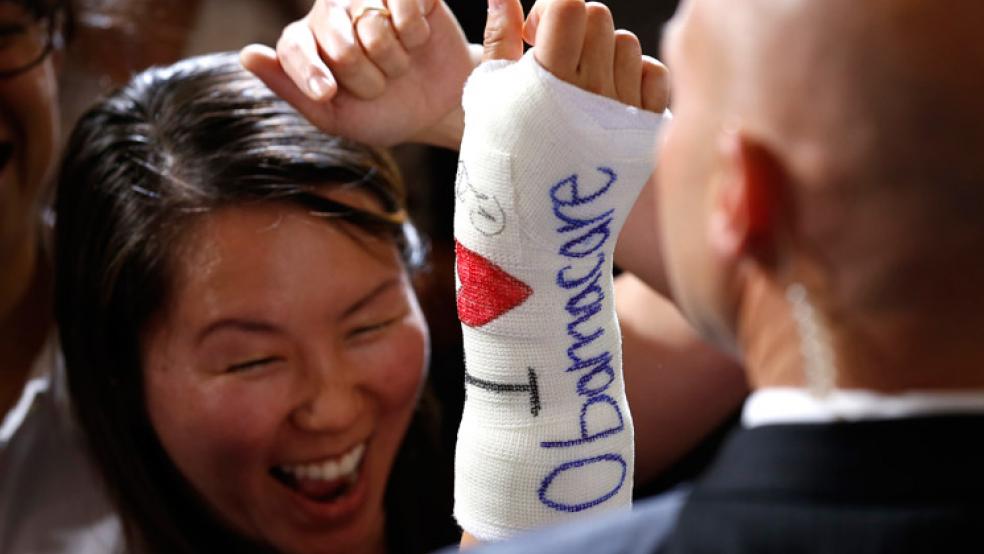In another sign that the Affordable Care Act is working as intended, states that have embraced the president’s signature health care law are reducing their uninsured rates faster than those that have not.
Gallup’s latest survey shows states that have set up their own exchanges and expanded their Medicaid programs saw their uninsured rates for those 18 and older drop to an average 13.6 percent in the first quarter of 2014. That’s about a 2.5 percent year-over-year drop.
Related: 4 Hurdles for Obama’s New HHS Chief
Meanwhile, states that did not expand Medicaid or set up their own exchanges under the ACA saw their uninsured rates hover around the 17.9 percent range – just a 0.8 percent drop from the same time last year.
This year, 17 states and the District of Columbia set up their own insurance exchanges, while the rest relied on the problem-plagued federal exchange, HealthCare.gov. Though some state websites also suffered from severe technical issues that hindered enrollment – including Oregon, Maryland and Massachusetts – the majority of state exchanges tended to perform better than the federal website.
Twenty-four states, all with Republican governors, opted against Medicaid expansion. That left about 5.7 million people who would have otherwise been eligible without coverage.
To be sure, states that chose to set up their own exchanges and expand Medicaid already had lower uninsured rates to start. Yet the new Gallup survey shows a greater disparity than before.
Related: Obamacare Battle in Virginia Mirrors National Fight
Under the law, the federal government fully funds each state’s Medicaid expansion program for three years, then at 90 percent thereafter. Most governors who did not expand the program say they feared their states would not be able to afford it down the road.
Georgia Governor Nathan Deal, for example, rejected Medicaid expansion, which would have provided about 650,000 low-income people with health coverage.
“I think that is something our state cannot afford,” Deal told The Atlanta Journal Constitution. He added that it “is probably unrealistic to expect that promise [of federal funding] to be fulfilled in the long term, simply because of the financial status that the federal government is in.”
The Congressional Budget Office (CBO) previously estimated that states would spend about 2.8 percent more on Medicaid with health reform than without it.
The new data is the latest piece of good news for Obamacare. Earlier this week, CBO estimated that about 12 million people had gained insurance coverage under the law. In line with previous Gallup surveys, CBO found that the uninsured rate had fallen to 16 percent – the lowest rate in about five years. In Monday’s report, CBO also said that by 2015, about 19 million people will gain coverage through the law, and 25 million more by 2016.
Top Reads from The Fiscal Times:





